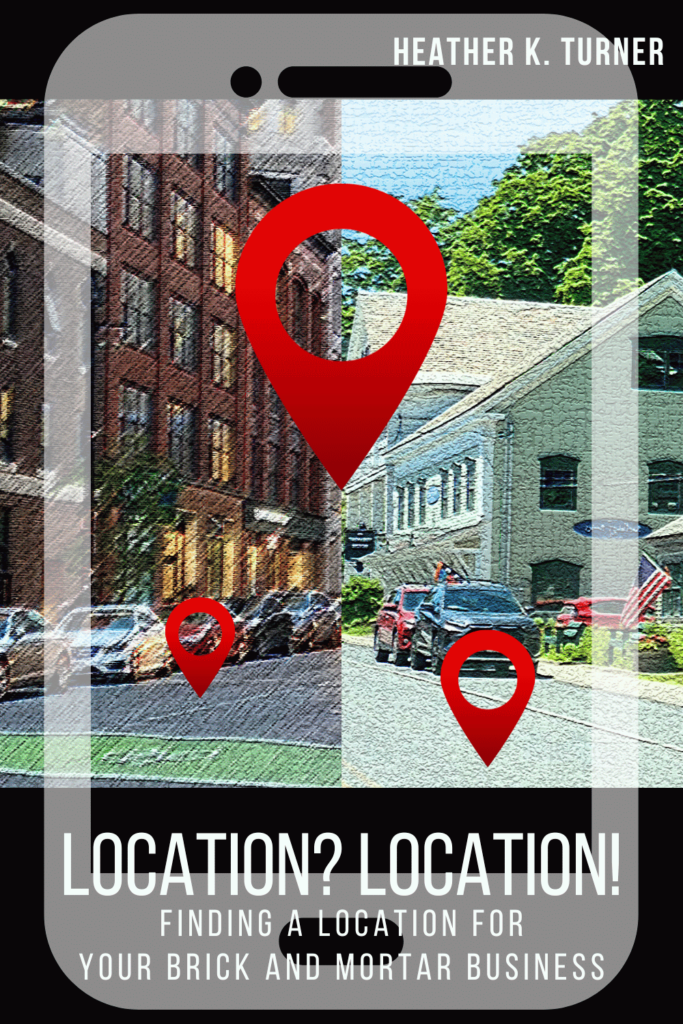 We recently had a chance to take a little time off and rented a VRBO for our kids and grandkids to come and stay for a few things.
We recently had a chance to take a little time off and rented a VRBO for our kids and grandkids to come and stay for a few things.
Sadly our local B&B that we would generally put them up at was booked up, so we had to settle for what we could find. Anyone who knows me knows I am not a fan of vacation rentals, this one at least had commercial liability insurance (a must to protect owners and guests) and was legally a business paying NH rooms and meals tax, so there was that.
This is not meant to be an op-ed on vacation rentals or to pick on them but to point out if you are a property owner of any kind renting short-term property out, legal B&B, hotel, motel, hopefully legally vacation rental…. You really should check out the rooms and property from the guest’s perspective. Further down in this post, I also touch on brick-and-mortar retail stores.
I’ve touched on this years ago in a couple of blog posts, Why it pays to sleep around for Bed and Breakfast owners and for restaurants, View Your restaurant from a customer’s perspective.
This property had a vacation rental manager who lived according to her, literally right down the road. The property was clean (except for the toaster oven, I’ll give that pass :), beds were comfortable, and it wasn’t out in the trees price-wise, all pluses.
But, In the main bathroom, the sink didn’t drain, and the whole fixture of the faucet was loose, so when you turned the water on, the whole fixture tilted.
In the kitchen, most of the knobs on the drawers and cabinets were loose, and I spent 5 minutes fixing them myself because it was bugging me. There were some other minor issues with the property (aside from the sink, which we did mention to the manager) that were not enough to be an issue or to complain about but it’s what sticks as a memory of the stay for my family. And the point is not to nitpick but to draw attention to the small details. Our kids and grandkids had a great stay otherwise but didn’t leave a review because of the small things.
There are mixed feelings from vacation rental hosts about supplying some essentials; some properties give guests starters or, depending on how long guests plan to stay, at least a few day’s supply of things like napkins, paper towels, and a garbage bag or two. Other rentals have a, “Well” we are not a hotel”; renters need to bring everything on their own.
I lurk on many lodging forums, both legal and not-so-legal lodging, and the discussions and different viewpoints are fascinating.
I’d point that that properties need to clarify that if they are not going to provide the bare minimum, state it explicitly up front. I’ve seen a score of rental sites saying, “Everything you need for a perfect getaway!“ (that kind of implies everything, no?) and then don’t have the little things. (as evinced by scores of reviews I’ve read)
While experienced vacation rental stayers may be hip and bring things, what about someone renting for the first time who may need to be made aware of having to bring everything? Or a case like this, where a renter might know but OOOPPPSS, forgot those paper towels, and the nearest convenience store is a good half-hour away. I’ve lost count of the number of reviews I’ve seen on vacation rental sites and other review sites where people are commenting on this. Apparently, not everyone pays attention to their reviews and they probably should. I wouldn’t be writing a blog post about it if it was just me observing this.
How much of an outlay is it for a place to have at least one roll of paper towels, a couple of extra garbage bags, and some napkins (just as examples). $3 isn’t going to detract much from that $400 a night a property is charging. Again this is not to nitpick, we were prepared and brought things, but how many people may not be or forgot something?
Here’s where I go back to if a property with no onsite owners wants to up their game, stay at the place, what’s wrong with it that’s fixable (even if it’s super minor)?
How can you make things just a bit better for guests? (and be legal, for heaven’s sake! Yep had to add that, darn my fondness for legal lodging).
It’s the little things that can make or break a stay for a guest and, even more importantly, lose a potential repeat customer and not have them leave a review, either positive or not. It IS the small stuff that tips people over the edge on leaving a good review. At a restaurant having an excellent meal with great service but the coffee at the end of the meal is cold is another great example.
What this is really tied into is this goes for ANY brick-and-mortar business out there.
When did you last walk through your retail shop/store selling clothing (as an example) and pretend you were a customer? Really “be” a customer, no joke.
Can those short people (I’m one of them, so this is an endless challenge shopping in many places) reach things?
Can the tall person with larger feet who is a customer reach down easily to get to the lowest row at floor level because not thinking about it, that’s where you have placed the larger shoes, and you did it for the convenience of yourself, not the customer?
I stopped into a little shop recently on a trip, and I had to ask the owner to take down some suit jackets I wanted to look at (note she was not overly tall but still had 6 inches on me). While in there, I also observed several other people (also vertically challenged) who felt some of the clothing, looked up at the clothing for more then a minute, and then walked away.
A question I’d be asking myself if I was the shopkeeper and was paying attention to my potential buying customers (this was the owner of the shop there, so no excuse that this was an employee) is how many of those people that had a little more than a passing interest in something too high to reach without having to ask, might have taken that shirt they were interested in and went to the mirror with it and then possibly to the changing room to try it on, to potentially the cash register and bought it??????????
Just because something is in person doesn’t change the sales funnel.
I’ve seen people pick up shopping baskets in stores, go to the back of a store (not necessarily a big box store) where there are large heavy objects, pick something up, put it back down, or pick it up, put it into their basket and then pick the basket up, put it back down and then place the item back on the shelf either because they wanted to do more shopping and/or they just didn’t want to lug it and anything else already bought up to the counter.
I’m not saying move all your heavy stuff up toward the cashiers but instead be more observant of your customers, not to mention if you’re the owner or manager; paying attention to customers is a good positive thing for customer interaction, but it also cuts down on theft.
In our local Supermarket, many of our stockers are on the tall side, and the general manager/purchaser doesn’t pay attention to things like double stacking, stacking above the cold line, or putting products into space where other SKUs belong, this includes allowing stock people to put items like gallon containers and #10 (extra large cans) on the very top shelf of aisles. For shorter people, we can’t even reach the top shelf half the time, let alone take something heavy down easily, and the reverse can be true if you have heavier items that frequently sell, putting them on the bottom shelf so taller people or older people have to bend down very far to retrieve them isn’t particularly helpful either.
Double stacking boxes on the top shelf makes it a challenge in Jenga to take a box down, no matter your height, and I’ve seen boxes of Cheerios falling on old ladies because they are double stacked, ouch ☹
Another common one is aisle space, sometimes you are at the mercy of a layout that you can’t change, but if you have racks, tables, or shelves that are movable, I challenge you as an owner or manager to dress in winter clothing with a bulky winter coat and/or bring a large bag/purse with you (or get a friend or employee to do it if you don’t feel comfortable with it) and aisle walk.
Can someone easily navigate through aisles? Do their clothes or bag catch on things or potentially brush things off a table or shelf to the floor by accident? What about people with strollers or carrying portable baby seats?
I’ve lost count of the number of times I’ve walked into a store and, within a minute, walked back out again because I’m afraid my bag (which isn’t huge), and nor am I, is going to knock something off a shelf because there is not enough space to walk easily without having to be hyper-aware of bumping into things.
I’ve also lost count of the times I’ve been behind someone going into a store who has done the same thing, walked in, and then turned right around and walked out; you’ve lost your sale before you even started.
One more is a public bathroom for shoppers. Does your stall have a hook on it to hang coats and bags? No one wants to put those on the floor, no matter how clean it looks. Not just women carry bags; what about bikers (motorized and non) with backpacks or fanny packs they may want to remove as an example, or coats for all genders?
Case in point, many box stores have a small ledge to put a purse down on. In traveling last week, I stopped at my favorite smokehouse in Bennington, Vermont (Henry’s Market); going to give them a shameless plug because, IMO, they have excellent sandwiches, great smoked meat, and friendly staff whenever I have stopped in every few months.
They have an ice cream cooler with a flattish top right in front of the cash register where you put the items you purchase. All five of the woman in line in front of me used the cooler to put their purse on to dig out their wallet, as did I, as did two of the men who were shopping who rode in on motorcycles and had backpacks. They may not have intentionally done this, placing the cooler there, but it sure made paying easier.
Sometimes it’s just a little thing to make a retail experience that much better, and it’s the small things (that detract) people remember.
It’s not just sales; it makes reviews telling (or not). How many reviews does your brick-and-mortar establishment have? You have a great product or products; things are priced well, and your customer service may be exceptional, but where are your loads of good reviews? If you’re not getting them and you’ve checked off all the former points, maybe it’s time to take a good look at your customer “experience” when they are in your establishment and be observant, put yourself in the customer’s shoes.
The phrase, Don’t Sweat the Small Stuff is the opposite of true when it comes to the customer experience. It’s the Small Stuff that matters and can put more money in your pocket as a business owner and I hope that matters.


